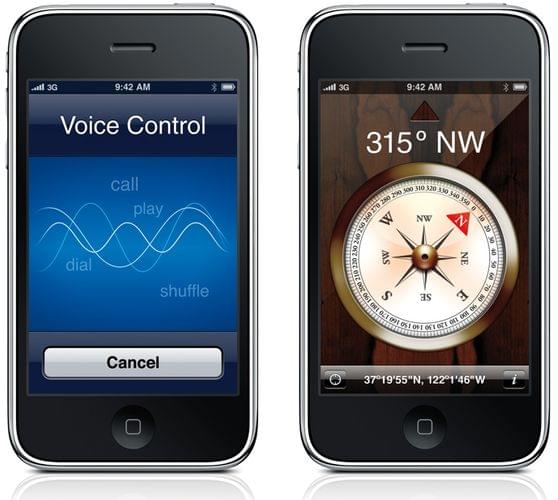The media seems to be a bit obsessed with hardware, iPhone and its “killers” and software (“apps”). This is technology after all. For me, much more interesting phenomenon are applications. I’m not talking about software but more generally what we use the technology for.
In Salmon of Doubt, Douglas Adams put it well that [we] are stuck with technology when what we really want is just stuff that works.
I believe that iPhone and what have followed since it are enabling just this. I also believe by just being “stuff that works” was the feature that made iPhone what it is today, while Nokia was fiddling around with technologies.
When I’m talking about mobile phones as Human-World Interface, I’m not really talking about augmented reality. For most part augmented reality is just hype and worst of all, it is just technology. There was some cool factor in being able to see where the London Tube stations were, but all of a sudden it seems like people are far more interested in “monetizing” the technology instead of looking for applications.

Instead, in my view one of the examples of how iPhone gives you an interface to the world around us are the public transportation guides. With access to your location, you can easily check out when the next bus or tram arrive and what bus or tram you actually need to take to get wherever you’re going. I think that the applications for more specialized uses are more interesting, like snipers using iPhone for calculations and doctors using it for stethoscope. For me, Human-World Interface could be summarised as the ultimate universal remote for the world.
I think we’re finally arriving to the vision of what a PDA was supposed to be. What the things we used to call PDAs a decade ago were crucially missing were mobile internet and user contexts (fe. location). One important part is also a universal information exchange protocol, and for most part the Web fills that role on modern phones. Right now it would look like instead of general-purpose web, one-application “apps” are the way to go. I don’t think this is a sustainable way forward, though. It works as long as you only focus on one device (like the iPhone) and you believe in an Apple monopoly, but if/when in the future we have forward-incompatible iPhones and plethora of smartphones running Nokia’s Maemo or Google’s Android, you might be better off falling back to the common Web.
Google’s opinion is that the Web will eventually win, but you have to keep in mind that their whole business depends on that. In the short-term, there’s still loads of money to be made in Apps, but in the long-term investing in the Web will pay off. It is however quite hard to justify investing for the long-term unless you have boatloads of capital, but Google’s planning to be here for that long. There’s no money to be made in infrastructure or technology per se (as RSS and Atom have shown) but once you have an application that depends on them, it all pays out (but you really need an application that has or adds value, not just a fancy feed reader/parser).
One of the still-in-R&D technologies for smartphones is Near Field Communications, which would enable one to (finally?) use one’s smartphone for paying for public transportation or at point of sales. Unfortunately this stuff has been so long in the pipeline that it might really be a technology in search of a problem. It is however a foray into the world where we would use our smartphone to interact with the world.
A similar idea of replacing one’s wallet with one’s mobile phone has been one that Nokia et al. have at various times tried to push, but like NFC, the main problem is that the advantages are not really significant (yet?) and there are serious drawbacks compared to the things you actually have in your wallet. For example, the credit card you have in your wallet is probably almost universally accepted, unlike mobile payment. Overcoming this rather crucial shortcoming is a chicken-egg-problem, however for mobile phone manufacturers. The companies that should develop this stuff are the credit card companies.
The same thing goes for everything else, like using your phone to open your garage door. The two things that need to happen for a universal remote for thw world are open technologies (in this case an API for your garage door), which in turn requires a business case for the companies to open up their interfaces. Only then is the Internet of Things possible. I believe that for Internet of Things to emerge, there’s little point in just identifying everything around us, but also interacting with them. Other than implants, mobile phones seem to be the best thing we have to do that.
Digital Chocolate’s Trip Hawkins has said that the iPhone is the coolest thing in all time and for him, it’s vastly superior to what Kirk had in Star Trek. I’m not as optimistic about iPhone of today, I’m sure there’s going to be much more cooler things in the future. Of the things that we have right now, I have to agree.
This post was originally posted to Tech IT Easy on January 9th 2010. I finally did my first purchase using NFC in the beginning of 2016 but not with my iPhone but on my Visa credit card. I also got over using quotes around the word apps.